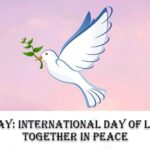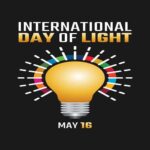World Pneumonia Day is observed annually on November 12th. This international day is dedicated to raising awareness about pneumonia, a common and sometimes deadly respiratory infection, and promoting efforts to prevent, diagnose, and treat the disease.
What is Pneumonia?
Pneumonia is an inflammatory condition affecting the air sacs in the lungs, primarily caused by infection. The air sacs, known as alveoli, may fill with pus or other liquid, hindering normal oxygen exchange. This can result in symptoms such as cough with phlegm, difficulty breathing, and fever. Pneumonia can range in severity from mild to severe and may be more critical for certain populations, including the very young, elderly, and individuals with weakened immune systems.
There are various types of pneumonia, classified based on the cause of the infection. The main types include:
- Bacterial Pneumonia: Caused by bacteria, such as Streptococcus pneumoniae. This type can occur on its own or following a viral upper respiratory infection.
- Viral Pneumonia: Caused by viruses, including influenza viruses (the flu), respiratory syncytial virus (RSV), and others. Viral pneumonia is often less severe than bacterial pneumonia.
- Mycoplasma Pneumonia: Caused by the bacterium Mycoplasma pneumoniae. It tends to cause milder symptoms and is commonly known as “walking pneumonia.”
- Fungal Pneumonia: Caused by various fungi, such as Pneumocystis jirovecii, which can affect people with weakened immune systems, like those with HIV/AIDS.
- Aspiration Pneumonia: Caused by inhaling food, saliva, liquids, or vomited materials into the lungs. This type can be common in individuals with swallowing difficulties.
The signs and symptoms of pneumonia vary from mild to severe, depending on factors such as the type of germ causing the infection, and your age and overall health. Mild signs and symptoms often are similar to those of a cold or flu, but they last longer.
Signs and symptoms of pneumonia may include:
- Chest pain when you breathe or cough
- Confusion or changes in mental awareness (in adults age 65 and older)
- Cough, which may produce phlegm
- Fatigue
- Fever, sweating and shaking chills
- Lower than normal body temperature (in adults older than age 65 and people with weak immune systems)
- Nausea, vomiting or diarrhea
- Shortness of breath
Newborns and infants may not show any sign of the infection. Or they may vomit, have a fever and cough, appear restless or tired and without energy, or have difficulty breathing and eating.
Diagnosis involves a combination of clinical evaluation, medical history, and imaging studies, such as chest X-rays. Treatment depends on the cause of pneumonia:
- Bacterial Pneumonia: Antibiotics are typically prescribed.
- Viral Pneumonia: Antiviral medications may be used for certain viral infections.
- Mycoplasma Pneumonia: Treated with antibiotics.
- Fungal Pneumonia: Antifungal medications are used.
Preventive measures include vaccination, especially for bacterial causes like Streptococcus pneumoniae, good respiratory hygiene, and addressing risk factors such as smoking or underlying health conditions that weaken the immune system.
History of World Pneumonia Day
World Pneumonia Day was established in response to the urgent need to address the global impact of pneumonia on public health, particularly among vulnerable populations such as children. The initiative originated from the Global Coalition against Child Pneumonia, a collaborative network of international organizations, NGOs, and individuals committed to combating pneumonia. The inaugural World Pneumonia Day took place on November 2, 2009, marking the beginning of an annual observance dedicated to raising awareness about pneumonia, advocating for resources, and promoting action to prevent and treat this infectious respiratory disease. Over the years, the day has gained momentum, with diverse stakeholders joining forces to amplify efforts in the fight against pneumonia. Advocacy and awareness campaigns have focused on crucial aspects such as vaccination, improved healthcare access, and addressing risk factors contributing to pneumonia. World Pneumonia Day serves as a global platform for collaboration and partnerships, emphasizing the shared commitment to reducing pneumonia-related morbidity and mortality and highlighting the importance of addressing preventable and treatable illnesses on a global scale.
Significance of World Pneumonia Day
World Pneumonia Day holds immense significance as a dedicated annual observance aimed at spotlighting the global impact of pneumonia and advocating for measures to prevent, diagnose, and treat this infectious respiratory disease. The day serves as a critical platform to raise awareness about the substantial burden of pneumonia on public health, particularly among vulnerable groups such as children and the elderly. By focusing attention on preventive strategies, vaccination initiatives, and the importance of timely medical intervention, World Pneumonia Day contributes to a collective effort to reduce the incidence and mortality associated with pneumonia. The significance of the day extends beyond awareness to fostering collaboration among diverse stakeholders, including governments, healthcare professionals, advocacy groups, and the public, in a shared commitment to combatting pneumonia and improving global health outcomes. Ultimately, World Pneumonia Day plays a crucial role in mobilizing resources, driving policy changes, and encouraging collective action to address a disease that remains a major public health concern worldwide.
Events at World Pneumonia Day
World Pneumonia Day is marked by various events and activities around the world to raise awareness about pneumonia, its prevention, and treatment. These events aim to engage communities, healthcare professionals, policymakers, and the public in efforts to combat pneumonia. Some common events and activities include:
- Educational Campaigns: Many organizations conduct educational campaigns to disseminate information about pneumonia, its causes, symptoms, and preventive measures. These campaigns often include the distribution of educational materials, brochures, and posters.
- Community Workshops and Seminars: Workshops and seminars are organized to educate communities about pneumonia prevention and treatment. Healthcare professionals may provide information on vaccination, hygiene practices, and recognizing early symptoms.
- Vaccination Drives: Given the importance of vaccination in preventing certain types of pneumonia, some areas organize vaccination drives to ensure that vulnerable populations, such as children and the elderly, have access to immunization services.
- Awareness Walks and Runs: Community walks, runs, or marathons are organized to raise awareness about pneumonia. Participants may wear distinctive colors or symbols to signify their support for pneumonia awareness.
- Health Screenings: Some organizations offer health screenings to detect early signs of respiratory infections, including pneumonia. These screenings may include spirometry tests and other diagnostic measures.
- Webinars and Online Discussions: With the increasing use of digital platforms, webinars, online discussions, and live-streamed events are organized to reach a broader audience. Experts may discuss various aspects of pneumonia, including its global impact and prevention strategies.
- Social Media Campaigns: Social media platforms play a crucial role in World Pneumonia Day events. Organizations and individuals use hashtags, infographics, and videos to share information, personal stories, and messages of support for pneumonia awareness.
- Partnership Launches: World Pneumonia Day often sees the launch of new partnerships and collaborations between healthcare organizations, governmental bodies, and non-profit groups. These partnerships aim to enhance efforts in pneumonia prevention, research, and treatment.
- Policy Advocacy: Advocacy events may be organized to engage policymakers and stakeholders in discussions about policies and strategies to address pneumonia on a national and global scale.
- Memorial Services: In some regions, memorial services may be held to remember those who have lost their lives to pneumonia and to honor the healthcare professionals and researchers dedicated to combating the disease.
These events collectively contribute to the overarching goal of World Pneumonia Day—to reduce the global burden of pneumonia through awareness, education, and collaborative action.
Tags: Events at World Pneumonia Day, History of World Pneumonia Day, Pneumonia, Significance of World Pneumonia Day, World Pneumonia Day











